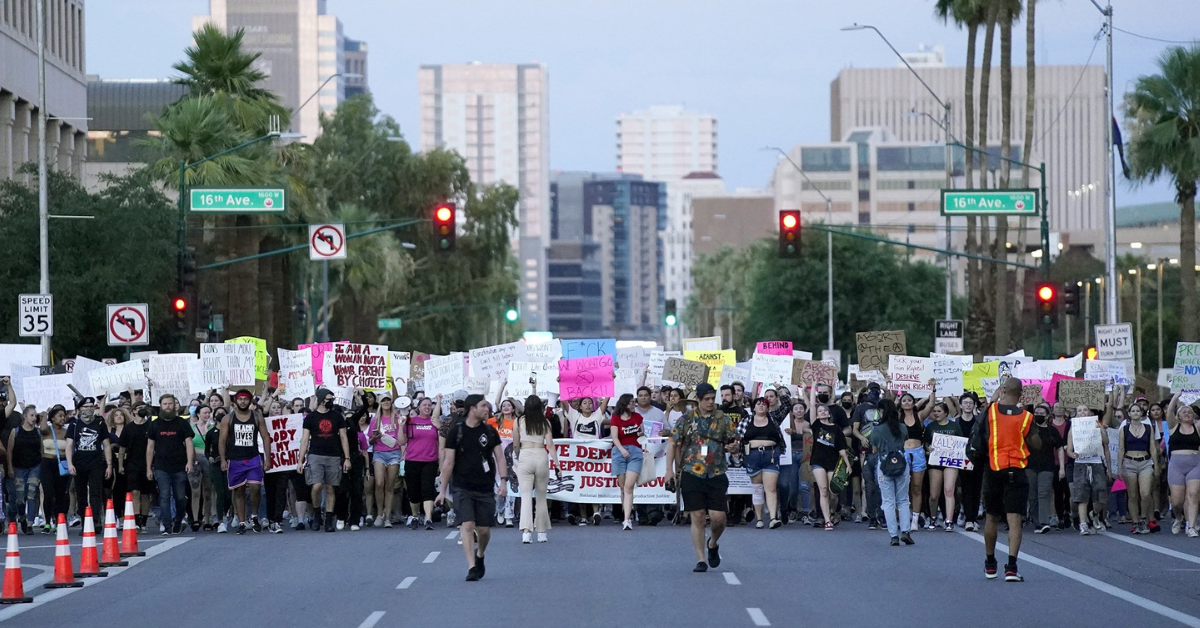Arizona lawmakers are proposing a controversial new measure for the growing issue of retail theft. The bill, which has already passed the state Senate, would grant ordinary citizens the legal authority to detain individuals suspected of shoplifting.
Supporters see this proposal as a much-needed tool to combat retail crime, while critics have concerns over potential misuse and safety risks.
The Proposal: Citizen Arrests for Retail Theft
Under the proposed legislation, private citizens would have the power to detain alleged shoplifters until law enforcement arrives. While store employees and security personnel already have some authority to intervene in thefts, this bill would extend that power to any bystander who witnesses a theft in progress.
Proponents of the measure argue that in this way, they’ll be able to empower citizens to reduce retail crime, which has been on the rise in recent years.
Retailers across Arizona, from small businesses to large chains, have reported significant losses due to shoplifting and organized retail crime. By allowing citizens to act, lawmakers believe they can discourage theft and create a stronger deterrent for would-be criminals.
Supporters Say It’s Time to Act
Supporters of the bill include business owners, law enforcement advocates, and some state senators who argue that retail theft has become a crisis.
Increasing costs in order to combat shoplifting can result in higher prices for consumers.
State Senator John Kavanagh, one of the bill’s sponsors, emphasized that shoplifting is not a victimless crime. “Businesses lose billions of dollars a year to theft, and many small businesses can’t afford those kinds of losses,” Kavanagh said.
He further states empowering citizens could help reduce the burden on law enforcement, which is often stretched thin when dealing with other priorities.
Concerns Over Safety and Legal Risks
Despite its intentions, the proposal has resulted in heated debate. Critics argue that allowing citizens to restrict shoplifters to avoid dangerous situations.
Both for both individuals attempting to intervene and for those being detained. The potential for confrontations can result in violence.
The potential for misuse or abuse of this new authority is also concerning. Civil rights authorities have raised concerns about the possibility of racial profiling or false accusations, which could disproportionately harm marginalized communities.
“Empowering citizens without proper training opens the door to serious legal and ethical concerns,” said one critic from a local civil rights organization.
Law enforcement officials are also divided on the issue. While some see it as a way to address lowering crimes more effectively, others are concerned about the implications for public safety and legal liability.
Safeguards and Limitations in the Bill
The bill includes specific limitations and guidelines for the limitations. For example, citizens who detain suspected shoplifters must have “reasonable cause” to believe a theft has occurred, and they must contact law enforcement immediately.
The law would also protect individuals from being sued for detaining someone, provided they acted within the law.
However, questions remain about how “reasonable cause” would be defined and enforced and whether citizens would have the training or judgment to declare a theft.
Broader Implications for Arizona
If passed, Arizona would become one of the few states to allow citizen detentions for retail theft explicitly. The move would mark a significant mark in lowering crime levels. Potentially influencing legislation in other states facing similar challenges.
For retailers, the bill represents a glimmer of hope amid rising theft rates. However, for critics, it underscores the need for alternative solutions, such as investing in better store security measures, addressing root causes like poverty and addiction, or increasing funding for law enforcement to handle these crimes more effectively.
What’s Next?
The bill has passed the Arizona Senate and is now heading to the House for further debate. Its future remains uncertain as lawmakers weigh the potential benefits against the risks and concerns raised by opponents.
While the debate continues, the issue highlights the ongoing struggle to balance crime prevention with public safety and individual rights. Whether this measure will help curb retail theft or create new challenges for Arizona remains to be seen.






